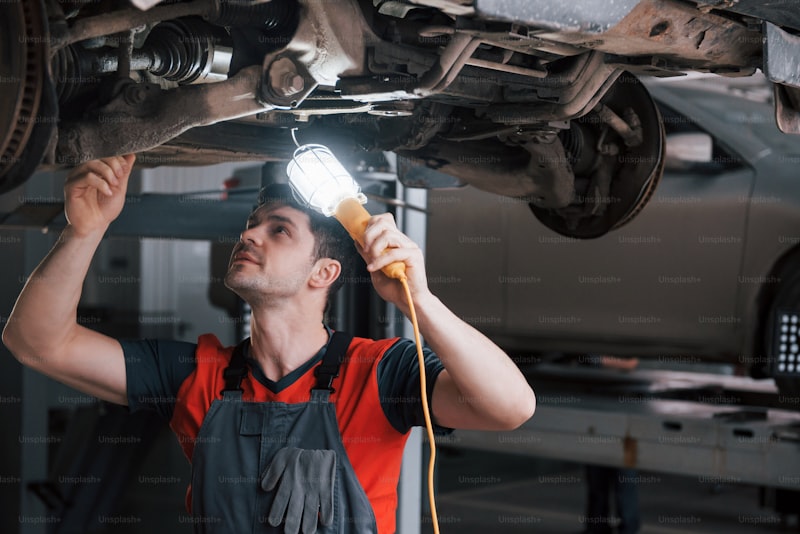Are you tired of dealing with pesky problems in your 2002 Honda CRV? Well, fret no more! In this article, we will delve into some common issues that owners have encountered with this popular SUV. So, let’s buckle up and dive right in!
One problem that drivers often face is with the transmission system. Some have reported erratic shifting, slipping gears, or even complete transmission failure. It can be quite frustrating to experience these issues, especially when you’re on the road or stuck in traffic. But fear not, as there are solutions available, ranging from simple fluid flushes to more extensive repairs.
Another concern that has plagued CRV owners is the air conditioning system. You may find that your AC blows warm air instead of providing the refreshing coolness you desire. This can be a real downer, especially during hot summer months. Don’t sweat it though, as there are various fixes for this problem. From checking refrigerant levels to inspecting the compressor, a skilled mechanic can diagnose and resolve the issue.
Electrical glitches have also been reported in the 2002 Honda CRV. Some owners have experienced problems with the power windows, door locks, or even the dashboard lights. These electrical gremlins can be quite puzzling, but fear not, as professional technicians are adept at tracing the root cause and rectifying the issue. It might be as simple as a blown fuse or a faulty wiring connection.
Furthermore, a number of CRV owners have faced difficulties with the suspension system. Complaints range from noisy shocks to premature wear of bushings and ball joints. Such problems can affect ride quality and handling, making it important to address them promptly. A knowledgeable mechanic can inspect the components, replace worn parts, and restore that smooth and comfortable driving experience.
Unveiling the Common Issues: A Comprehensive Look at 2002 Honda CR-V Problems
Are you a proud owner of a 2002 Honda CR-V? This reliable and versatile SUV has served many drivers well over the years, but like any vehicle, it’s not without its fair share of problems. In this article, we will delve into the common issues that CR-V owners may encounter with their 2002 models.
One of the most prevalent problems reported by CR-V owners is transmission failure. Some drivers have experienced difficulties shifting gears, while others have noticed strange noises coming from the transmission. This issue can be both frustrating and costly to fix, often requiring a complete transmission replacement.
Another common concern relates to the air conditioning system. Many 2002 CR-V owners have complained about weak or inconsistent cooling performance. It can be particularly bothersome during hot summer months when you rely on your air conditioning the most. The culprit could be a refrigerant leak or a faulty compressor, which may require professional attention to resolve.
Electrical problems have also plagued some 2002 Honda CR-V owners. Issues such as malfunctioning power windows, non-functional dashboard lights, and intermittent electrical failures have been reported. These problems can be traced back to wiring issues, blown fuses, or faulty switches. Identifying the exact cause can be a challenge, so seeking assistance from a qualified mechanic is advisable.
Furthermore, a number of owners have faced significant rusting and corrosion on their CR-Vs. This is particularly noticeable in areas prone to road salt during winter months. Rust can weaken the structural integrity of the vehicle, leading to safety concerns and reduced resale value. Regular inspections and prompt treatment of any signs of rust are essential to prevent further damage.
Owning a 2002 Honda CR-V comes with its fair share of potential problems. Transmission failure, air conditioning issues, electrical malfunctions, and rust are among the common concerns reported by owners. It’s important to stay vigilant, perform regular maintenance, and address any problems promptly to keep your CR-V running smoothly for years to come.
From Transmission Troubles to Electrical Woes: Delving into the Challenges Faced by 2002 Honda CR-V Owners
Are you a proud owner of a 2002 Honda CR-V? If so, you may have experienced your fair share of challenges with this reliable yet aging vehicle. From transmission troubles to electrical woes, navigating these issues can be frustrating. In this article, we will delve into the common challenges faced by 2002 Honda CR-V owners and shed light on possible solutions.
One of the most prevalent problems encountered by CR-V owners is transmission issues. A faulty transmission can manifest in symptoms such as harsh shifting, slipping gears, or even complete transmission failure. These problems can significantly impact the overall driving experience and, if left unaddressed, lead to expensive repairs. Regular maintenance, including fluid changes and inspections, is essential in preventing or mitigating transmission troubles.
Electrical problems are another hurdle faced by 2002 Honda CR-V owners. Malfunctions in the electrical system can cause a variety of issues, including non-functional power windows, erratic dashboard lights, or a drained battery. Troubleshooting electrical problems requires patience and expertise, as they often stem from faulty wiring, corroded connectors, or malfunctioning components. Seeking professional assistance from a certified technician is advisable to diagnose and resolve these complex electrical woes.
Furthermore, some CR-V owners have reported engine-related challenges. These may include rough idling, stalling, or decreased performance. Issues like clogged fuel injectors, faulty ignition coils, or worn-out spark plugs could be responsible for these symptoms. Regular tune-ups and adhering to the manufacturer’s recommended maintenance schedule can help prevent such problems and keep your engine running smoothly.
Owning a 2002 Honda CR-V comes with its own set of challenges. Transmission troubles, electrical woes, and engine-related issues can test any owner’s patience. However, by staying proactive with regular maintenance and promptly addressing any emerging problems, you can ensure a smoother and more enjoyable driving experience with your trusty CR-V. Remember, seeking the assistance of a qualified mechanic is crucial when facing complex issues, as they possess the expertise to diagnose and resolve these challenges effectively.
Owners Speak Out: The Most Frustrating Flaws Plaguing the 2002 Honda CR-V

Introduction:
Driving a reliable and efficient vehicle is every car owner’s dream. However, even the most dependable vehicles can have their fair share of frustrating flaws. In this article, we explore the experiences of owners who have voiced their concerns about the 2002 Honda CR-V, shedding light on the most common issues that plagued this popular SUV.
-
Transmission Troubles:
One of the major gripes reported by owners of the 2002 Honda CR-V revolves around transmission problems. Some experienced rough shifting, delayed engagement, or even complete failure of the transmission. This issue not only caused inconvenience but also resulted in costly repairs, leaving owners frustrated and dissatisfied. -
Air Conditioning Woes:
Another flaw that irked many CR-V owners was related to the air conditioning system. Complaints ranged from weak cooling performance to sudden malfunctioning, leading to discomfort during hot summer days. The frustration amplified when repair costs for the AC system proved to be quite hefty. -
Electrical Gremlins:
Several owners expressed frustration over electrical issues plaguing the 2002 CR-V. Problems included faulty power window switches, malfunctioning door locks, and intermittent dashboard lighting. These electrical maladies not only hindered convenience but also posed potential safety risks, affecting the overall ownership experience. 
Rust and Corrosion:
Many CR-V owners were left dismayed by the premature rust and corrosion that affected their vehicles. This flaw was particularly evident in areas prone to harsh weather conditions and road salt usage. The unsightly appearance and concerns about structural integrity left owners feeling let down by Honda’s manufacturing quality.-
Suspension Struggles:
Some owners reported dissatisfaction with the CR-V’s suspension system. They complained of excessive noise, bumpy rides, and uneven tire wear. These issues compromised the smoothness and comfort of the driving experience, detracting from the overall appeal of the vehicle.
Conclusion:
The 2002 Honda CR-V, despite its popularity, had its fair share of frustrating flaws that left owners dissatisfied. From transmission troubles and air conditioning woes to electrical gremlins, rust, and suspension struggles, these issues tarnished the ownership experience for many. Understanding these concerns can help potential buyers make informed decisions when considering a used 2002 Honda CR-V or prompt existing owners to seek appropriate solutions for these persistent flaws.
Safety Concerns and Recalls: Examining the Problematic Aspects of the 2002 Honda CR-V
Introducing the 2002 Honda CR-V, one of the most popular compact SUVs during its time. While it gained recognition for its reliability and versatility, it also faced a fair share of safety concerns and recalls. In this article, we’ll delve into some of the problematic aspects associated with this particular model.
One of the significant safety concerns that plagued the 2002 Honda CR-V was related to faulty airbags. The National Highway Traffic Safety Administration (NHTSA) reported cases where the airbags failed to deploy properly during accidents. This raised serious concerns about the vehicle’s ability to protect occupants in the event of a collision. Honda responded promptly by issuing recalls to address the issue and replace the defective airbags.
Another area of concern was the occurrence of unexpected fires. Some owners reported incidents where the engine compartment caught fire without any prior warning signs. Investigations revealed that a faulty power window switch could lead to overheating and, in worst cases, fire. To mitigate this risk, Honda initiated a recall campaign to replace the defective switches and prevent potential fire hazards.
Furthermore, there were instances of unintended acceleration, which posed a threat to both the driver and other road users. Drivers complained about sudden surges in engine power, making it challenging to control the vehicle. Upon investigation, it was found that a malfunctioning throttle cable was responsible for these incidents. Honda took action by recalling affected vehicles, inspecting and replacing the faulty components to ensure safe driving conditions.

These safety concerns and recalls highlight the proactive measures taken by Honda to address potential risks associated with the 2002 CR-V. By acknowledging and rectifying these issues, the company demonstrated its commitment to ensuring customer safety and satisfaction.
While the 2002 Honda CR-V boasted many positive attributes, it faced significant safety concerns and recalls. Faulty airbags, unexpected fires, and unintended acceleration posed serious risks to drivers and passengers. Nevertheless, Honda promptly addressed these issues by issuing recalls and implementing necessary repairs. By doing so, the company prioritized the safety and well-being of its customers, reinforcing its reputation for reliability and customer satisfaction.